- By Maggie Fintel
There are plenty of components when it comes to playing a game of soccer. From dribbling to shooting, continuously practicing these skills can enhance your performance on and off the field. Some of these can improve individual performance, but passing can grow both individual and team skills as a whole.
Passing/possession drills can improve the team’s communication skills, attentiveness, first touch, and even their connection on and off the field. Being able to pass the ball accurately and precisely can affect the team’s performance and quality during practice and games. If you watch professional soccer teams on television, you can see how the passing just flows so swiftly between the players. These players know precisely how and where to pass to their teammates, but they have also had plenty of practice and developed a connection within their team. Building a strong bond with your team, being focused, and lots of practice can help build strong passing skills during the game.
Coaches must implement passing drills during practices. There are plenty of drills to choose from, depending on your team’s strengths and weaknesses, and a range of variations within each exercise. With the continuous passing practice, each player will develop a new and vital skill as well as building upon that necessary team bond.
There is a multitude of different passing drills to have your team work on. Here are three soccer passing drills that you, your team, and your coach can work on during practices to perfect passing:
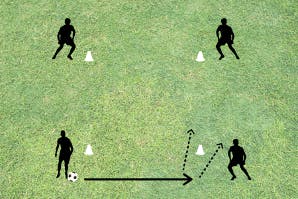
Before You Star
Equipment:
- 4 cones
- 1 soccer ball (or more for variation)
- 4 players (or more for variation)
The Set-Up:
- place the four cones in a 10x10 grid, each player on each cone to start.
How It Works
- Begin with one player at each cone
- One player starts with the soccer ball at their cone.
- The player with the ball will pass it towards the cone either to the left or right of them (determines which direction you desire to start with. In the diagram above, the player is passing to the right).
- The receiver is able to use either the inside or outside of their foot while receiving the ball from the passer.
- The receiver may go behind or in front of the cone, shown as the dotted lines in the diagram above. The cone represents the “mock defender” in which the player is trying to move around.
- The receiver, once taking their first touch behind or in front of the cone, then passes the ball to the next receiver, repeating this process around the square.
Switch It Up
- Number of soccer balls. Adding more soccer balls can create a quick drill to challenge your players’ attention and communication skills
- Number of players on each cone. Decreasing the number of players creates a faster-paced drill or increasing to build a better team connection
- Call out a change in direction during the drill. This can help the players work both left and right feet and test their reaction skills
More Tips
- Get the players to communicate! This is a great drill to work on the team’s communication skills. The players can say “Ball!” “Here!” “Left foot!” “Right foot!” and more.

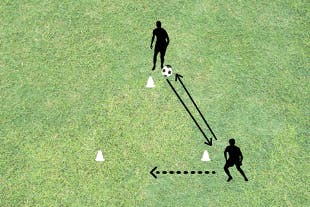
Before You Start
Equipment:
- 3 cones
- two players
- one soccer ball
The Set-Up:
- Place 3 cones in a pyramid shape, with two players on separate cones
How It Works
- One player is at the top of the pyramid with the soccer ball; the other is on either the left or right bottom cone (whichever one you wish to start with)
- The top player will pass the ball towards the player when at the cone.
- The receiver will take a touch, then pass the ball back to the top player.
- After passing the ball back to the top player, the bottom player will then sprint to the next cone to receive the ball once again.
- Repeat these steps until the time is up (approximately 1-2 minutes), switch roles from the top stagnant player to the moving bottom player.
Switch It Up
- Number of touches. Switch from a two-touch pass to a one-touch pass for quicker, more controlled movement
- Number of players. Instead of sprinting back and forth between cones, there can be three players on the drill to pass in a triangle structure
More Tips
- Make sure the receiver takes a light and controls the first touch. Do not want the ball flying around towards the opponent
- Communicate. Let the passer know which foot you would like to receive the ball on (“Left!” or “Right!”)
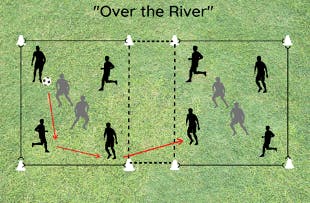
Before You Start
Equipment:
- 8 cones
- 12 pennies (8 one color, 4 a different color)
- 12 players
The Set-Up:
- Make a large 20x30 rectangle
- Create a 2x10 boundary in the center of rectangle
- 4 attacking players and 2 defensive in each box
How It Works
Soccer ball starts in either box with the offensive team (team with four players in each box). The defensive team has two players in each box, the rest of the team sits out for the round.
The offensive team must complete at least three passes within their box without the defenders taking the ball.
After connecting three complete passes, the offensive team’s objective is then to pass the ball to the other box without letting the defensive team take the ball.
The defenders are trying to take the ball away from the offensive team. If the defenders take the ball three times within the same box, the positions must switch (offense becomes defense, defense becomes offense).
The only way to switch roles is for the defense to steal the ball away from the offense.
Switch It Up
- Limit the number of touches. Limit to one-touch passing for a high-intensity game
- Adjust grid size. Make the grid smaller and tighter for quick passing or larger to work on long passes and time awareness
- Make the offensive team “loft” or “chip” the ball over the middle-dotted line area towards the other box after completing the three passes. This works on lofting skills and first touch out of the air.
Additional Videos on Soccer Passing:
Winning Soccer Vol. 5: Passing, Receiving, and HeadingWinning Soccer Vol. 5: Passing, Receiving, and Heading
Paul Riley's Soccer Moves, Skills, and DrillsPaul Riley's Soccer Moves, Skills, and Drills
Soccer Drills & Tips Video LibrarySoccer Drills & Tips Video Library
World Cup Soccer with Mia HammWorld Cup Soccer with Mia Hamm
Passing is the route of all things great in soccer, so there will be aspects of passing in every drill that you do. When your players start to grasp the fundamentals of passing, you can start to progress into more tactical methods of passing. This includes positioning and areas that you want to exploit.
If you are interested in the more tactical side of passing, Coach Kadioui's course, Football (Soccer) Play Styles - Possession is a superb course.
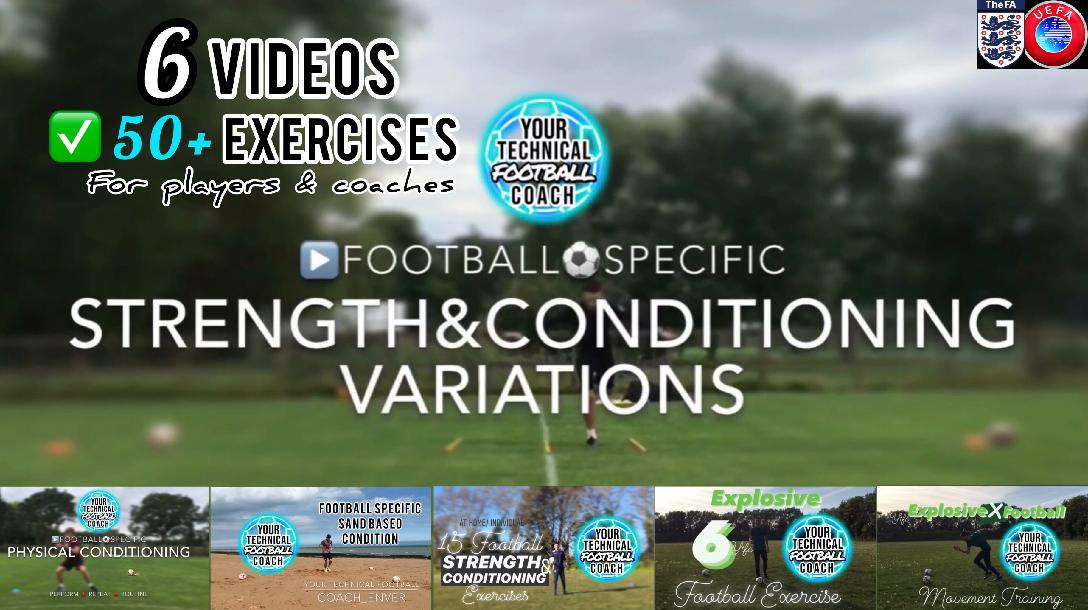

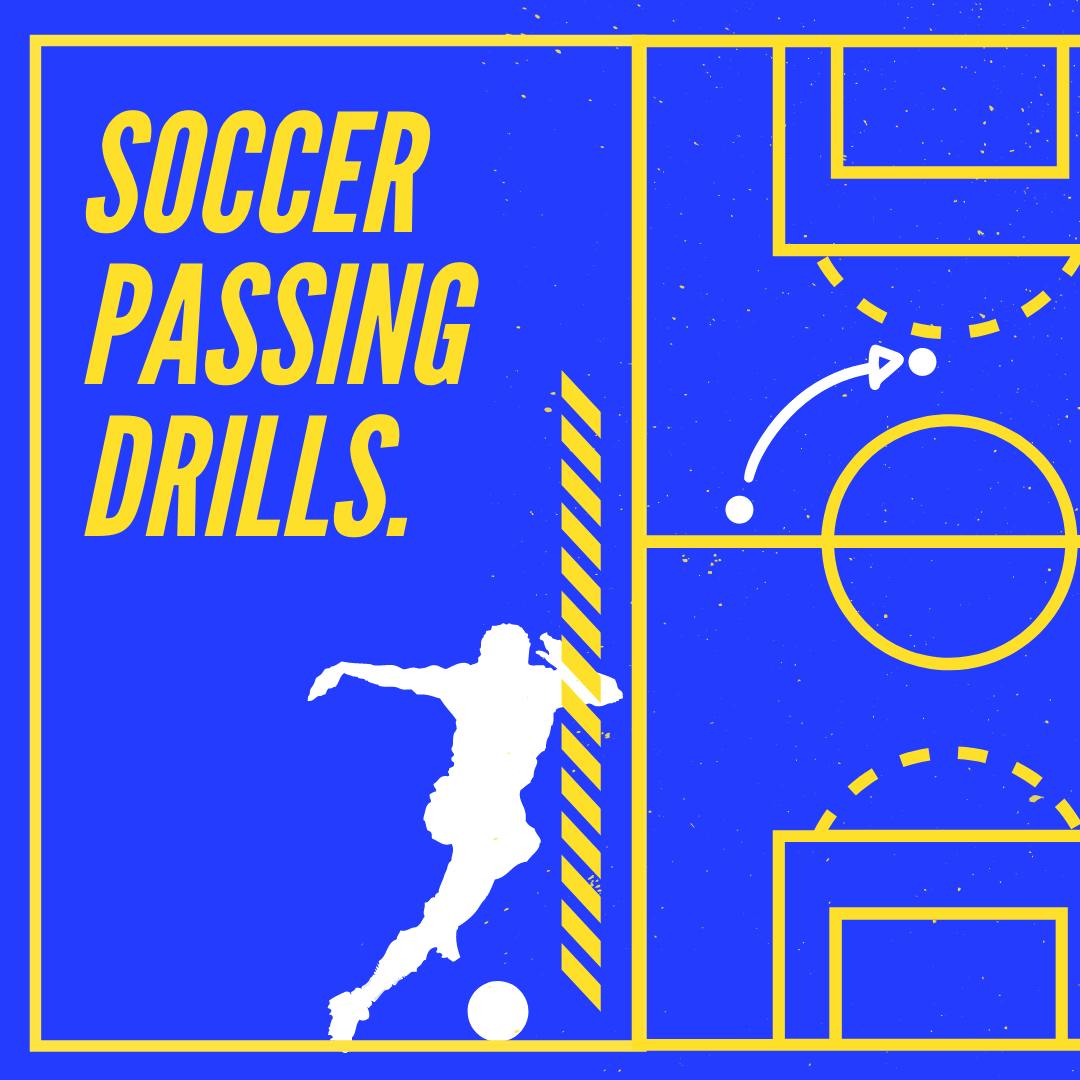

No comments:
Post a Comment